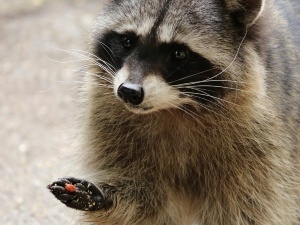
Raccoons may be known as animals that can eat anything but this isn’t entirely true. These animals may be able to eat a wide variety of foods, but some foods will make raccoons sick and are toxic to them. This article looks at toxic foods for raccoons.
Table of Contents
Toxic food for raccoons:
Raccoons have a very interesting diet, they are able to eat foods from the garbage, as well as carrion, but they can’t eat certain everyday foods. Other foods that are toxic to raccoons include:
Chocolate, coffee, and cocoa:
Chocolate may be loved by many people, and coffee may be what keeps many of us up during the day and night, but raccoons can’t have it. All of these foods contain a chemical called theobromine.
Theobromine is toxic to raccoons, it increases the animal’s heart rate. An increase in heart rate will cause the raccoon to become hyperactive, more aggressive, and irritable.
In addition, eating this food will cause the animal to develop diarrhea, the animal will start to vomit, it will develop seizures, and, it can even die. This chemical can also negatively affect the animal’s kidneys
Different types of chocolate contain different amounts of theobromine, higher amounts will have a more severe effect on the animal.
Baking chocolate contains the highest levels of theobromine at 376mg per square ounce, dark chocolate contains 228mg per square ounce.
One bar of chocolate given to a raccoon on occasion will negatively affect the animal but it won’t kill it. Feeding a raccoon a bar of chocolate every day will kill it eventually.
Spices and onions:
As much as humans love to add spices and onions to our foods, this is not good for raccoons. Spices and onions both contain disulfides and sulfoxides, namely thiosulphate. If raccoons eat this salt, they will develop anemia
The type of anemia that raccoons will develop, as a result of eating onions and spices, is hemolytic anemia, this type of anemia causes the animal’s body to attack and destroy its own red blood cells because the body sees them as foreign objects.
The result of this is a raccoon that is very tired, has pale gums, its body tissue doesn’t get enough oxygen, and its brain doesn’t get enough oxygen either
Avocado:
This is a healthy food that is well-loved by humans but is toxic to raccoons. This food contains trace levels of a fungal toxin called persin, persin does not affect humans but it can cause raccoons to vomit, develop diarrhea, as well as develop heart congestion.
Avocados are usually avoided by raccoons, these animals know by instinct that this food is not good for them. They will not eat it whether offered it or if they are starving.
Foods containing xylitol:
A variety of human foods and products contain xylitol, foods that contain this ingredient include sugar-free gum, sugar-free mints, sweetened cereals, nicotine gum, oral care products, and certain baked foods.
This chemical is very helpful to humans but it isn’t good for raccoons. Xylitol is a sugar alcohol commonly used as a sweetener. It is a popular ingredient in human products but it is quite toxic for raccoons
Xylitol can cause raccoons to suddenly vomit, develop seizures, can cause a drop in their blood sugar levels, can cause them to develop a loss of coordination, and can even cause liver failure in raccoons.
Cows milk:
We humans may drink cows’ milk in gallons but raccoons should not be given cows milk. Cows’ milk does not agree with raccoon bodies. The composition of vitamin D in cows milk can cause raccoons to have indigestion and other digestive issues
Raccoon babies cannot be fed cow’s milk either, this milk will make the baby raccoon sick.
Giving this drink to your baby raccoon will cause it to develop malnutrition as well as cause it to become dehydrated, this can lead to the baby’s death. Goat milk, soy milk, and other milk products that humans drink, aren’t recommended for baby raccoons either
If you own a raccoon, and you accidentally give it any of the foods listed above, then you’d need to quickly contact your local vet or wildlife rehabilitation center and get them to examine your raccoon. If possible, these professionals will also prescribe treatment against the toxicity
If you enjoyed this article then you may also be interested in other raccoon related articles. Here are some articles that you may be interested in: What time do raccoons eat, Why Do Raccoons Climb Trees At Night?, What Do Raccoons Eat In Winter?

